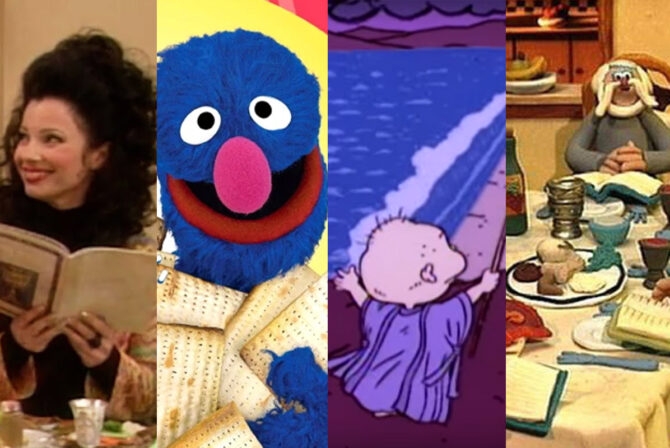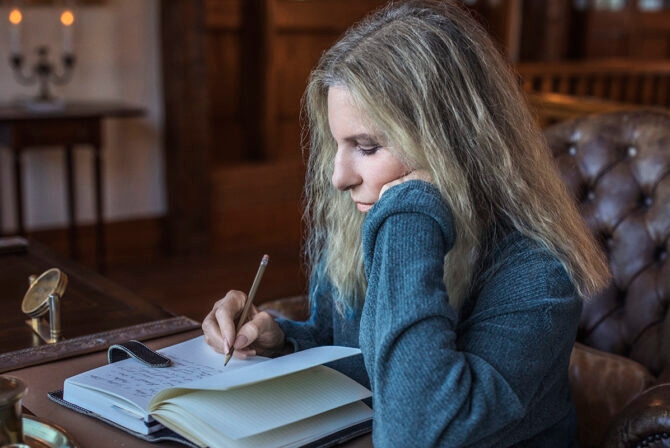As part of our month-long series dedicated to Jewish Disability Awareness Month, Benay shares her success at mainstreaming her son on the autism spectrum into a Jewish day school classroom.
Our son got his first
siddur
(prayer book) last week, and it was–in a word–amazing. A year ago, I never would have predicted he would be up on that stage. In fact, I was convinced of just the opposite–that my son would not be attending Jewish day school at all, let alone participating in the first grade siddur ceremony. I was so convinced, I blogged about how unlikely it would be for he and our new local community Jewish day school to be a match.
I’ve never been so happy to say I was wrong.
Our son was diagnosed as being on the Autistic spectrum when he was 2 years old. Thanks to an incredible team of therapists providing, among other things, speech and occupational therapy, he made amazing gains. But still, when it came time for kindergarten, he still lacked age-appropriate social and play skills, he avoided trying new things, and he struggled to appropriately express and temper his emotions. So no one said we should consider Jewish day school. Nor did anyone recommend we consider a mainstream classroom. Instead, we enrolled him in a public school program where he received intensive speech and occupational therapy in a self-contained classroom, while spending increasing periods of time in a mainstream classroom. It was a wonderful program, and three-quarters of the way through the year, he was socializing with his peers, not tantruming, and as a result, spending nearly all day in the mainstream classroom.
Before we knew it, first grade was approaching–and his teachers recommended a placement in a mainstream class in our local elementary school. But because of all the progress he had made, and the availability of small classes and extra attention at our community’s new Jewish day school, Rockland Jewish Academy (RJA), we also realized Jewish day school was, for the first time, an option. And faced with a choice between the two types of schools, both of which seemed risky, we pursued what we and our son wanted–RJA.
There were no guarantees. We already knew that not every school (public or private) would be a good fit for our son, and so we approached the possibility of RJA knowing that it would not be in anyone’s best interest to belabor a bad situation. Still, we knew our son had his heart set on being there, and we threw ourselves into making his enrollment a success.
We were (and are) clear and honest with the school about our son’s needs, and how we can all partner together. There was a learning curve for everyone, to be sure–but I think that our honest foundation is a big part of why our son has had a successful year so far.
But the other reason for his success is that RJA has really embraced his inclusion in the school community. We work closely with our son’s teachers, speech therapist, occupational therapist and school counselor to try to address small problems before they become huge.
A couple of weeks before the siddur ceremony, our son’s Judaic studies teacher called us at home. The class had been practicing for weeks; our son was excited to sing every song and speak his parts. But at the recent school Tu Bishvat celebration, he had a small meltdown after the other students clapped for his class’s performance. His teacher was nervous that he would get upset by the clapping at the siddur ceremony, and would later be upset with himself that he had such a public reaction. She wondered what we could do to help him.
Clapping has always been one of those unexplainable things that bother our son. He had no problem clapping for other people, but he cried and tantrumed when other people clapped for him, no matter how many times we explained it was a nice gesture. He could not explain why he got so upset; he just couldn’t find the words. And he did not want to get upset, but couldn’t figure out how to stay in control of his emotions each time it happened.
We agreed I would continue to try to figure out what about the clapping was bothering him. His teacher would incorporate some clapping into practice sessions so he might adjust. Finally, before the siddur ceremony, it clicked for him. Clapping, he explained to me, was how a deaf person would know that someone was saying congratulations. With that in mind, clapping was no longer frightening, and he went on to receive a siddur alongside the rest of the first grade class–clapping and all.
When our son received his siddur, I was incredibly proud. But what made me even prouder was seeing all of the people in our “village” who shared my pride: our family, RJA staff, parents and friends, and the rabbis from our synagogue. Inclusion of children with disabilities is difficult, and is not always possible in every situation. But when I looked around the room at the siddur ceremony, I was so grateful that inclusion is working for our son, allowing him to be part of RJA’s amazing community.
Our son may learn differently than others and he may have some social quirks that other kids his age don’t. But our son loves Judaism as much, if not more, than the next child, and he deserves the same opportunities to embrace our religion as anyone else. RJA shares that belief, and regularly accommodates his different learning styles and needs so that he can be as successful as his classmates.
Last year at this time, I didn’t know what to expect in terms of where our son fit into our Jewish community. And while I know there are no guarantees, for right now RJA is a great fit. For our son’s part, he is already talking about what his
chumash
(the printed form of the Torah) ceremony will be like. That’s a goal I can get behind, and I think RJA can too.

 This post is part of a joint series with Kveller & Matan during February’s Jewish Disability Awareness Month. Through advocacy, education and training opportunities Matan empowers the Jewish community to include children with special needs. For more information For more information, visit their website.
This post is part of a joint series with Kveller & Matan during February’s Jewish Disability Awareness Month. Through advocacy, education and training opportunities Matan empowers the Jewish community to include children with special needs. For more information For more information, visit their website.
Like this post? Get the best of Kveller delivered straight to your inbox.







